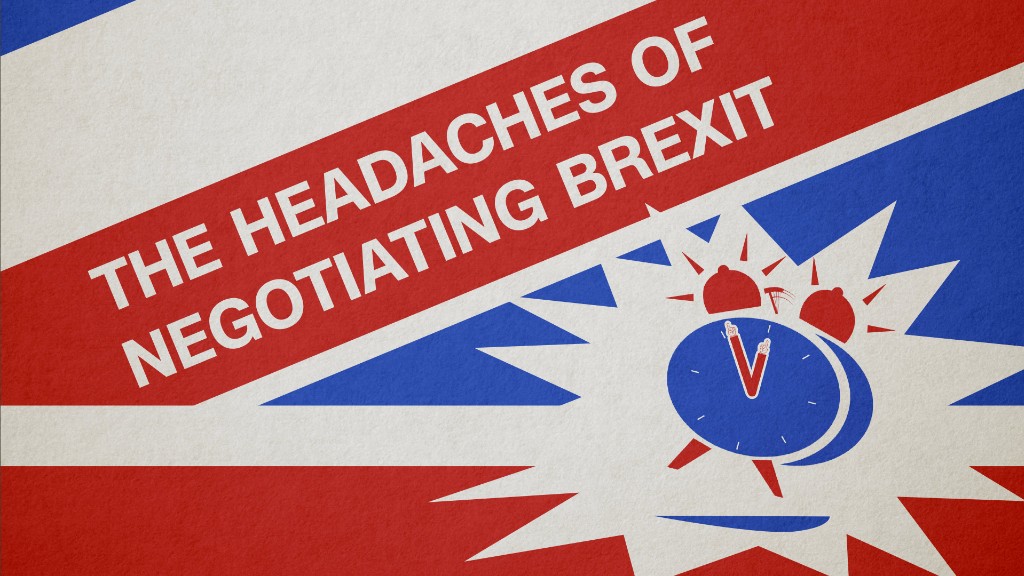
Britain's plans for exiting the European Union are haphazard and the country's finances are in dangerously poor shape.
Those aren't the rantings of the government's political opponents, but the views of its own watchdogs.
The extraordinary warnings were issued Thursday by the National Audit Office, which scrutinizes government outlays, and independent fiscal monitors at the Office for Budget Responsibility.
They are likely to increase pressure on Prime Minister Theresa May, who has been heavily criticized in recent weeks over her approach to Brexit.
Amyas Morse, the head of the National Audit Office, told reporters that government departments would benefit from a much more unified approach to exit planning.
"What we don't want to find is that at the first tap it falls apart," he said, referring to the exit plan. "Can government actually step up in these very difficult circumstances and deliver a unified response? I'm not seeing it yet."
Morse entered the public debate to raise the alarm over Britain's new customs system, which must be in place before the country exits the EU in March 2019.
Brexit, the watchdog said, could increase the number of customs declarations at the border from 55 million to 255 million a year. The current system can only handle 100 million a year.
Morse said that failing to get a new system in place before the divorce could lead to a "horror show" of custom officials trying to manually process imports and exports.
The warning underscores the scale and complexity of the task ahead for Britain.
Leaving the EU means that the U.K. will no longer be party to over 600 treaties that the EU has with non-European nations on issues ranging from aviation rules to nuclear imports.
It also needs to sort out a new trading relationship with Europe and other key partners.
Related: Is the U.K. headed for a recession?
There won't be much room for error.
The Office for Budget Responsibility said Thursday that U.K. public finances are more sensitive to surprises than they were before the financial crisis -- despite years of painful spending cuts.
The watchdog said public finances are at risk of becoming unsustainable because of slower wage growth, higher inflation and the possibility of rising interest rates.
"The U.K. still has one of the worst public deficits in Europe and is hence particularly vulnerable to any slowdown in growth," said Holger Schmieding, chief economist at Berenberg Bank.
Related: It's official. Business isn't investing in Britain.
Brits are already saving the smallest share of disposable income in over 50 years. Credit card borrowing is at record high. Wages are stagnating and consumer confidence is crashing.
Data published in late June confirmed the economy grew just 0.2% in the first three months of the year, cementing Britain's position as the slowest growing economy in the EU.
Observers are watching closely to see if consumers and businesses grow more uneasy as Britain's divorce negotiations with the EU pick up speed.
Corporate leaders are most anxious about a scenario in which Britain crashes out of the EU without a deal. They would face new trade barriers and huge amounts of red tape.


